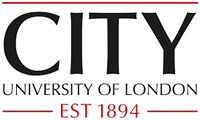About the Project
In spite of the pervasiveness of language disorder, and its long term academic, social, emotional and economic impact, little is known about this condition in adults. This research aims to investigate the needs of adults with DLD and the services available to them. Research increasingly links impaired language and literacy with poorer long term outcomes; lower educational attainment and employment prospects, increased likelihood of accessing the criminal justice system and social, emotional and mental health difficulties. The recently introduced SEND Code of Practice extended the commission of health, education and social care from 18 to 25 years but the extent to which speech and language therapy (SLT) services have been developed for this older age group is unclear, as is the availability of services for adults with DLD over 25 years.
Aims
1) To investigate the needs and current SLT and specialist services to older children and adults with DLD, from the perspectives of a range of stakeholders (professionals working with this group, clients and family members, through an online survey and semi-structured interviews
2) Carry out and evaluate the effectiveness of a language intervention directly related to the needs of the client, as specified from the survey and interview data, through three single case studies.
Method:
A cross sectional research design will use purposive sampling, and Qualtrics online software, to explore the perspectives of key stakeholders about services provided to young people and adults with DLD. Data analysis will draw on a mixed methods approach. From the survey, a small number of adults with DLD will be invited to participate in interviews, exploring their views. This information will be used to plan three intervention case studies, integrating the principles of evidence-based practice; client preference, research evidence and clinical expertise and Solution Focussed Brief Therapy.
Potential for a field of strong candidates: Recently there has been a renewed interest into DLD, precipitated by a change in terminology and diagnostic and prognostic indicators. There is also a greater awareness of the social and emotional impact of early language difficulties and its pervasiveness into adulthood. Hence, it is envisaged that there will be a very strong and competitive interest in this topic area.
If you would like to have an informal discussion please contact: [Email Address Removed]
School of Health Sciences
The School of Health Sciences is offering up to five full/part-time Doctoral Studentships to outstanding candidates. We are a leading provider of applied healthcare research and we offer PhD candidates an outstanding research environment: in REF 2014, 100% of our research environment was judged as world leading or internationally excellent and 100% of research impact was judged as world leading or internationally excellent. In the recent Postgraduate Research Experience Survey, 96% of PhD students responding rated the expertise and responsiveness of their supervisors as excellent. Successful applicants would join around 70 current PhD students in the School, providing a supportive environment of peers.
Eligibility
The studentships will be awarded on the basis of outstanding academic achievement and the potential to produce cutting edge-research.
• Applicants must hold at least a 2.1 honours degree or merit level Masters degree in a relevant subject (or international equivalent)
• Applicants whose first language is not English must have achieved at least 7.0 in IELTS or a recognised equivalent
• Applicants must not be currently registered as a doctoral student at City, University of London or any other academic institution
How to Apply
To apply for studentship funding:
• Complete an application form for a place on the PhD programme by clicking here where you will be asked to register before you can complete your application
• Upload your research proposal (four sides of A4 maximum including references) on one of the specific projects listed by supervisors or in any of the areas covered by the research centres following discussion and agreement with a potential supervisor.
Research centres: https://www.city.ac.uk/health/research
• Suggested structure of proposal:
1. Project description; Topic, motivation from the literature, Methods and potential impact
2. How does this fit with the work carried out in the School of Health Sciences?
3. Potential for this research lead to an important question or methodological innovation that might lead to 4* output
• Upload a short cover letter with your application requesting that your application be considered for studentship funding
• Submit your online application form and supporting documents by 30 November 2018. If you have any queries, please the doctoral degrees support officer, Tracy Rowson ([Email Address Removed]).
Funding Notes
• An annual bursary (£16,000 in 2018/19)
• All fees for PhD student registration paid for UK and EU students. Applications are welcome from overseas applicants but the applicant must make appropriate arrangements to cover the difference between the overseas and UK tuition fee
• Research costs up to £1000 over the three years

 Continue with Facebook
Continue with Facebook

